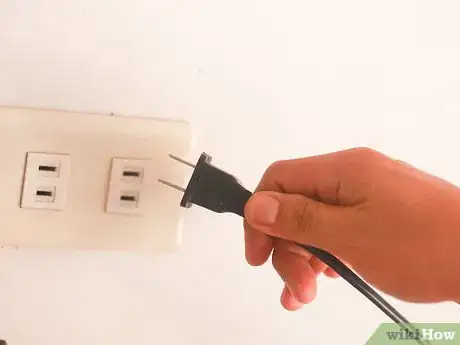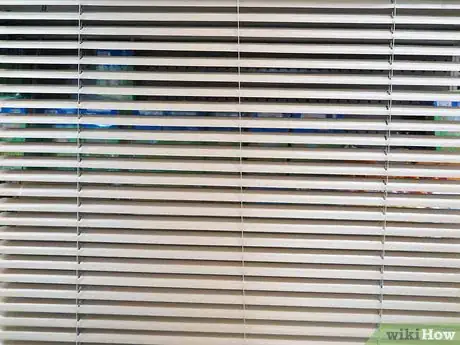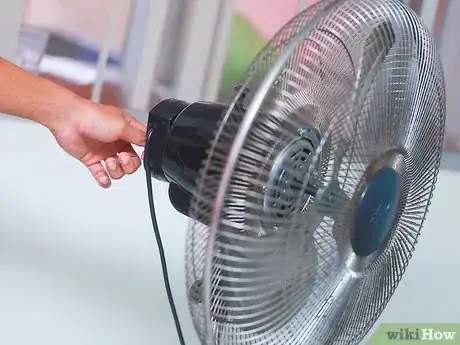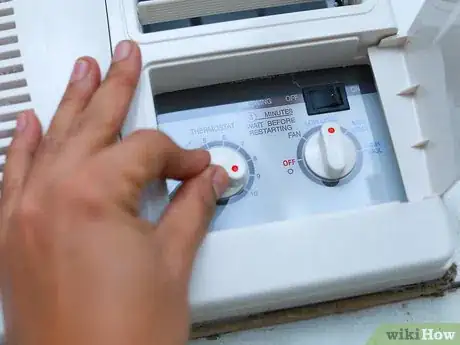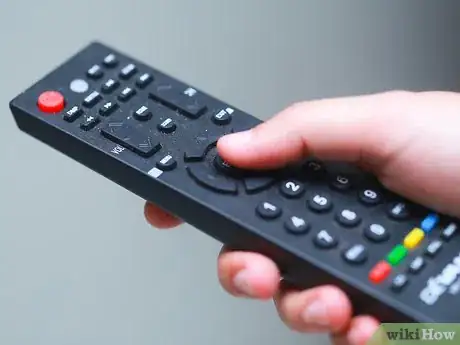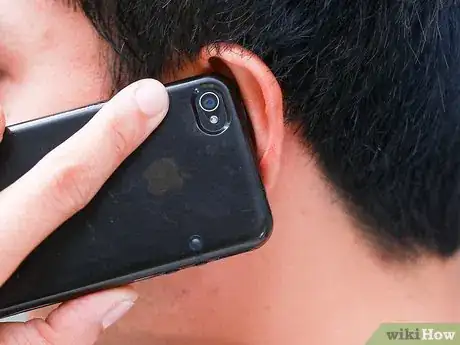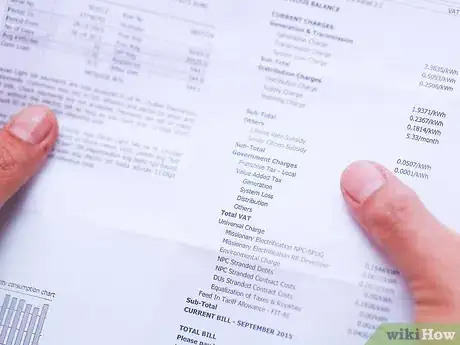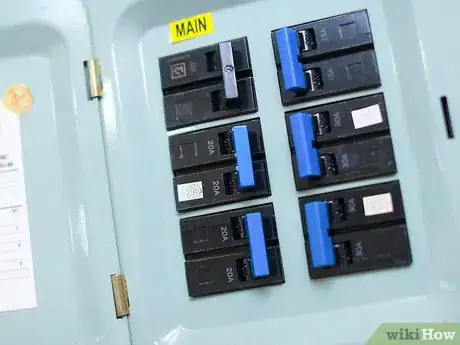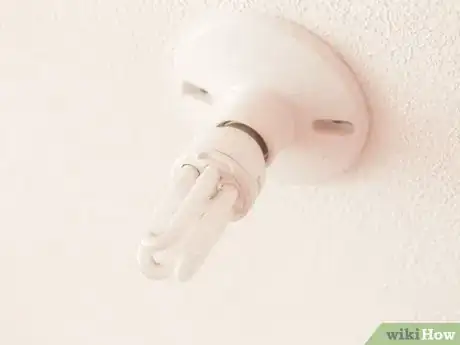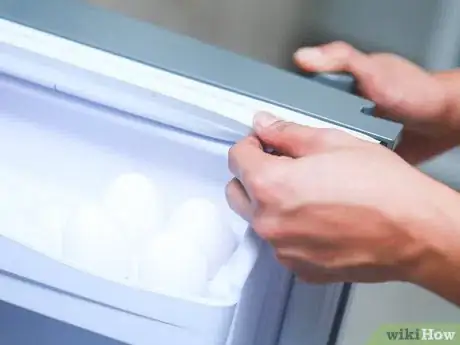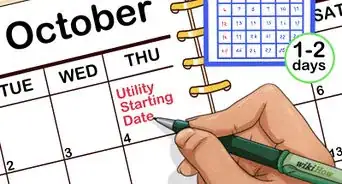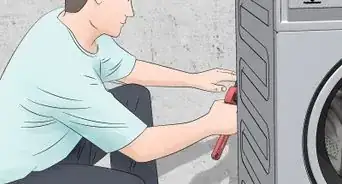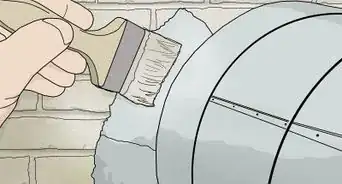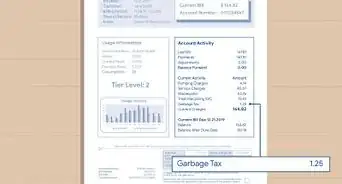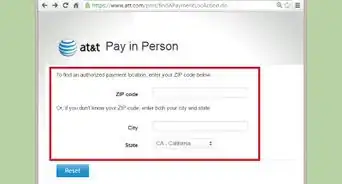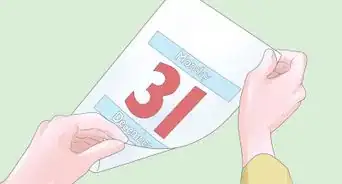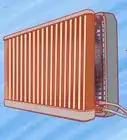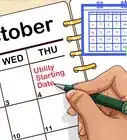This article was co-authored by Kathryn Kellogg. Kathryn Kellogg is the founder of goingzerowaste.com, a lifestyle website dedicated to breaking eco-friendly living down into a simple step-by-step process with lots of positivity and love. She's the author of 101 Ways to Go Zero Waste and spokesperson for plastic-free living for National Geographic.
wikiHow marks an article as reader-approved once it receives enough positive feedback. This article received 12 testimonials and 100% of readers who voted found it helpful, earning it our reader-approved status.
This article has been viewed 219,392 times.
During the summer, electric bills can skyrocket. There are some simple energy saving techniques that can help you lower electricity bills in the summertime. For best results, implement more than one method. If you are trying to cut down costs at home or work, talk to your family members, roommates, or coworkers so they know how to save energy, too.
Steps
Saving Electricity
-
1Cut down on energy leaks. This includes turning off lights and other electronics. When you leave a room, shut off the light behind you. Unplug electronics that aren't being used, such as cell phone chargers, small appliances like toasters, or power strips that provide power for many appliances.
- Big-screen TVs, DVD players, digital photo frames, and other appliances use more energy than you realize.
- Unplugging an appliance is best because certain appliances use energy even if they are turned off.
- Consult with roommates or coworkers before unplugging a shared appliance.
-
2Spend time outdoors. Spending a lot of time indoors will naturally lead to higher energy costs because you will be using lights, electronics, and air conditioning. Spending more time outdoors means you can turn off indoor electronics, and in the process, you will have fun going to the beach, the park, the movies, and so on. Turn off all electronics before leaving the house.Advertisement
-
3Close blinds, storm windows, or shades during the day. The sun can heat up a room very quickly. Keeping the sun from shining into windows will cut down on cooling costs, and many stores sell curtains specifically designed for this purpose.
-
4Use fans instead of air conditioning. Circulation is important to using less air conditioning during the summer. Cool down the house early in the morning by placing a box fan in the window and opening up another window at the opposite end of the house, in addition to turning on ceiling fans. Box fans sit perfectly in most windows and help cool air come inside.
- Most central air conditioners will also have internal fans to help circulate the air in your house while reducing your need to use the air conditioner. Turn the fan on “auto.”
- Using fans at night will help a natural breeze cool down your house; this will only work if you live in an area that drops in temperature at night.
- Turn a fan directly towards yourself or guests if the temperature is very hot.
-
5Use air conditioning efficiently. Set the thermostat to 78, and don't lower it. You can also turn the air conditioning off at night and in the early morning. If you want to invest in an energy efficient air conditioner, these are 10-15% more efficient.[1]
- The smaller the difference between the outdoor and indoor temperatures, the smaller your bill.
- Do not place appliances that give off heat, such as lamps or TVs, near an air conditioner's thermostat.
-
6Use electricity during off-peak hours. If you plan to use electronics like a washer and dryer, air conditioning, and computers or televisions, try to do so during off-peak hours like early in the morning or late at night. Electrical companies charge less for energy consumed during off-peak hours.
- It is recommended you wait until after 6 pm to cook, do laundry, or wash dishes on days the temperature is over 90 degrees.
- Contact your local electrical company for more information on local peak hours.
Getting Electrical Bill Discounts
-
1Contact your local electricity company. The company that provides your area with electricity will vary depending on where you live. If you are new to the area, use a search engine to type in the name of your area and the words “electricity company” to see where your electricity is coming from.
-
2Ask about discounts you can receive. Often, you can receive help with your bill year-round if you are in a low-income household, on disability, or have a limited income for other reasons. A representative of your electricity company will tell you what discounts are available.
-
3Participate in a voluntary direct load control program, if available.[2] These types of programs are widely available in most areas, and involve getting bill credits in exchange for allowing the electricity company to install a control switch on your air conditioner, heater, or other utility.
- The electricity company will turn the utility off during peak hours.
- Often, the utility is not shut off for long periods of time.
- Speak with an electrical company employee for more details.
-
4Lower your cost per kilowatt hour. In many states, you can choose a company, called an energy supplier, instead of your utility to supply your power. Just like how you can choose your own cell phone company. Your bills would still come from your utility since the utility owns the power lines to your house, but the actual cost for your power is under your control. There are comparison websites where you can see several options for lower electricity rates per kilowatt hour with multiple energy suppliers and sign up within minutes. Be sure to read the fine print as some contracts have hidden fees or have a rate spike after the end of the contract term. You can research on your utility's website and the internet to find reputable companies to choose from.
Implementing Energy-Saving Products
-
1Use energy efficient light bulbs. Compact fluorescent (CFL) and light emitting diode (LEDs) bulbs are more efficient than traditional incandescent bulbs because they use less energy.[3] Your local hardware store will have these bulbs available for purchase.
- Check lamps and other lights to see if you are using any incandescent bulbs.
- [Change a Light Bulb|Replace all the incandescent bulbs]] in your house or office.
- CFL bulbs need to be recycled once they burn out.
-
2Use energy efficient appliances. Microwaves, pressure cookers, or outdoor grills use less electricity than stoves and ovens.[4] You can also use a clothes-line instead of a dryer. When purchasing new products, look for energy efficient options.
-
3Check for proper insulation. Insulation cuts down on cooling costs because it helps keep cool air inside during the summer. Because insulation requirements have changed over the years, your home or place of work may not have enough insulation. Some types of insulation can be installed by you, and others need professional installation.
- Check for insulation in attics or crawl spaces, making note of areas where there is weathering or gaps in the insulation.
- Checking a wall's insulation is difficult and requires you to probe an electrical socket.[5] Consult a professional for help.
- Batts are flexible blanket-like products that fit into spaces of the wall; these can be installed by homeowners.
- Foam or fiber insulation will need to be installed by a professional.
-
4Plant shady trees on the west and south sides of your house.[6] This is a more permanent solution to cutting down summer energy costs, and it is only possible if you are a homeowner or if you get permission from your landlord. The shady trees will cut down on cooling costs for your home.
Expert Q&A
Did you know you can get expert answers for this article?
Unlock expert answers by supporting wikiHow
-
QuestionHow can I lower my AC electricity bill?
 Kathryn KelloggKathryn Kellogg is the founder of goingzerowaste.com, a lifestyle website dedicated to breaking eco-friendly living down into a simple step-by-step process with lots of positivity and love. She's the author of 101 Ways to Go Zero Waste and spokesperson for plastic-free living for National Geographic.
Kathryn KelloggKathryn Kellogg is the founder of goingzerowaste.com, a lifestyle website dedicated to breaking eco-friendly living down into a simple step-by-step process with lots of positivity and love. She's the author of 101 Ways to Go Zero Waste and spokesperson for plastic-free living for National Geographic.
Sustainability Specialist Use a smart thermostat; there are many out there now. And even if you don't have one, there's no point in cooling a house you're not in. So if you're leaving for the entire day for eight hours, there's no reason that your air needs to be running at 68 degrees. So bump it up, have it run at room temperature, and then when you get home, just cool it down.
Use a smart thermostat; there are many out there now. And even if you don't have one, there's no point in cooling a house you're not in. So if you're leaving for the entire day for eight hours, there's no reason that your air needs to be running at 68 degrees. So bump it up, have it run at room temperature, and then when you get home, just cool it down. -
QuestionHow do you save electricity with an electric AC?
 Kathryn KelloggKathryn Kellogg is the founder of goingzerowaste.com, a lifestyle website dedicated to breaking eco-friendly living down into a simple step-by-step process with lots of positivity and love. She's the author of 101 Ways to Go Zero Waste and spokesperson for plastic-free living for National Geographic.
Kathryn KelloggKathryn Kellogg is the founder of goingzerowaste.com, a lifestyle website dedicated to breaking eco-friendly living down into a simple step-by-step process with lots of positivity and love. She's the author of 101 Ways to Go Zero Waste and spokesperson for plastic-free living for National Geographic.
Sustainability Specialist
-
QuestionI heard that the electric bill increases 10% for each degree the thermostat is set below 76 - is this true?
 DonaganTop AnswererThat's just someone's wild guess. It's really not possible to arrive at a figure like that, because a person's electricity bill reflects so many variables specific to that person, most notably ambient temperature, source of heat, insulation efficiency, and other consumption of electricity.
DonaganTop AnswererThat's just someone's wild guess. It's really not possible to arrive at a figure like that, because a person's electricity bill reflects so many variables specific to that person, most notably ambient temperature, source of heat, insulation efficiency, and other consumption of electricity.
Warnings
- Using the air conditioning can be a great asset to avoiding heat stroke and other heat related illnesses. If you must keep the air conditioning on a temperature lower than 78 degrees, use other methods to cut down electricity bills during the summer.⧼thumbs_response⧽
References
About This Article
To lower your electricity bills in the summer, close your window blinds and curtains during the day to keep the temperature in your home down and cut down on cooling costs. You can also save money by unplugging electronics and appliances when you're not using them, like your TV, toaster, and cell phone charger. Also, try to use electricity during off-peak hours since you'll be charged less, like waiting until early in the morning or late at night to do laundry. To learn how to get electrical bill discounts, scroll down!
